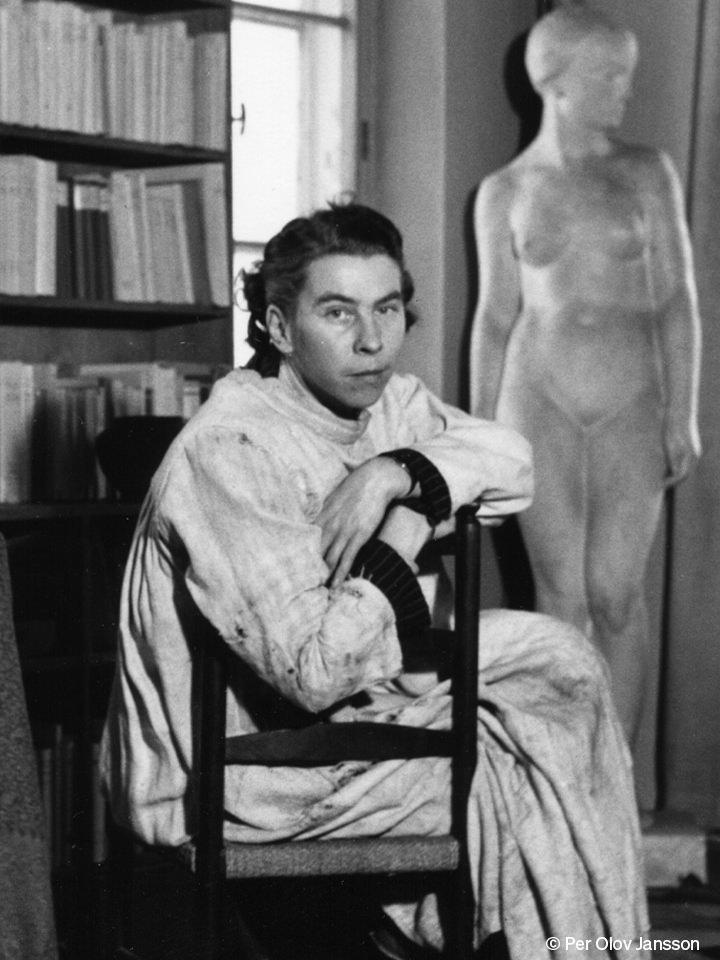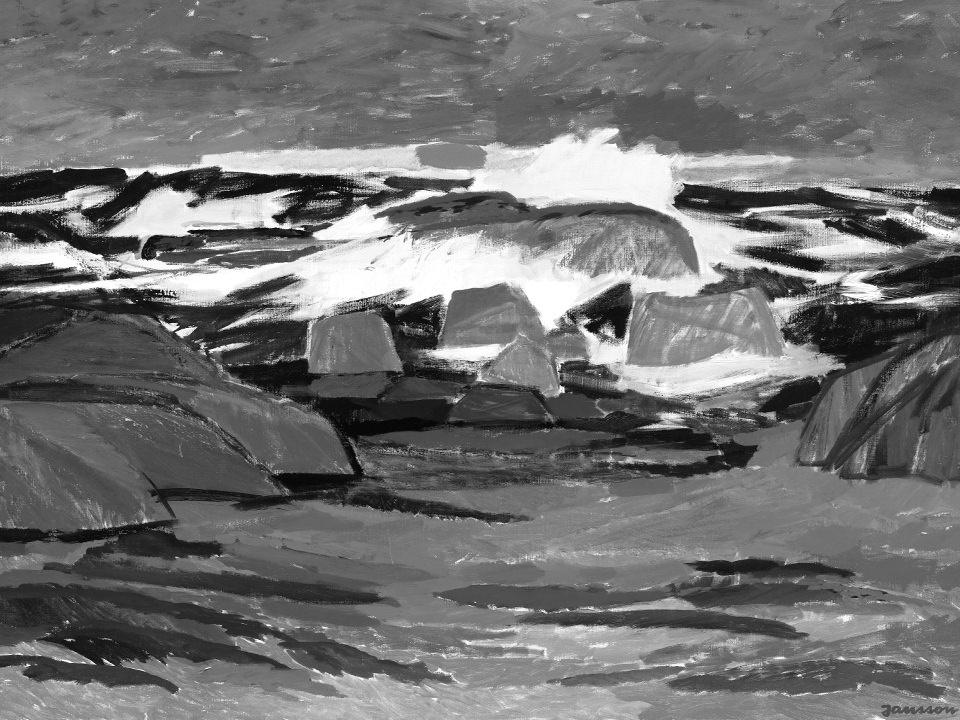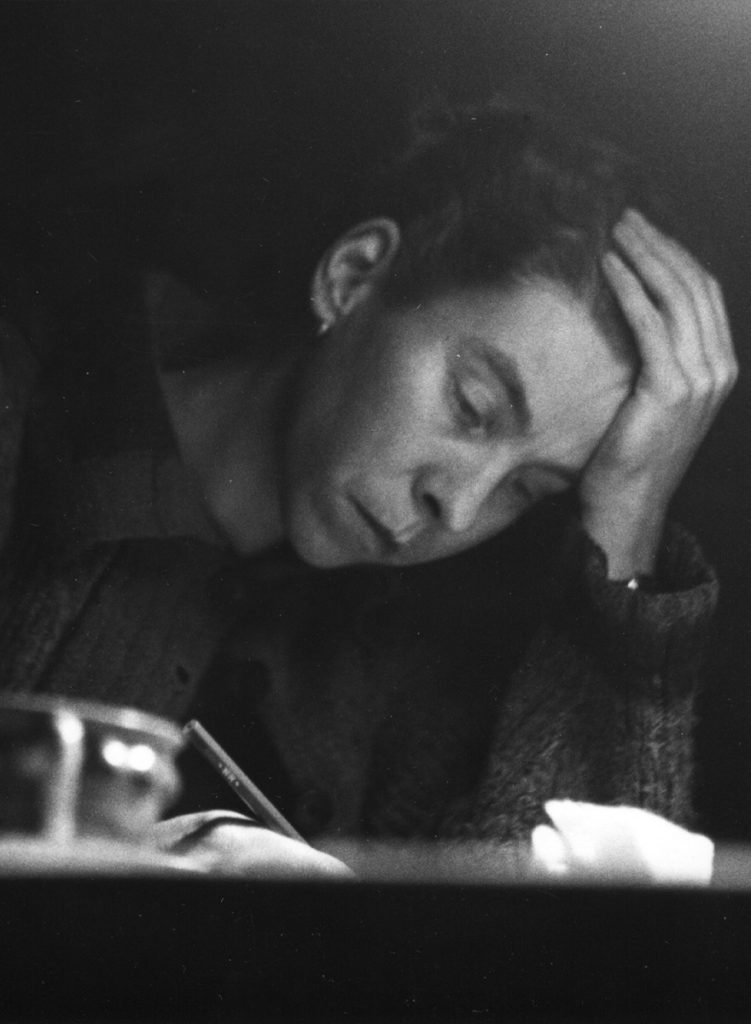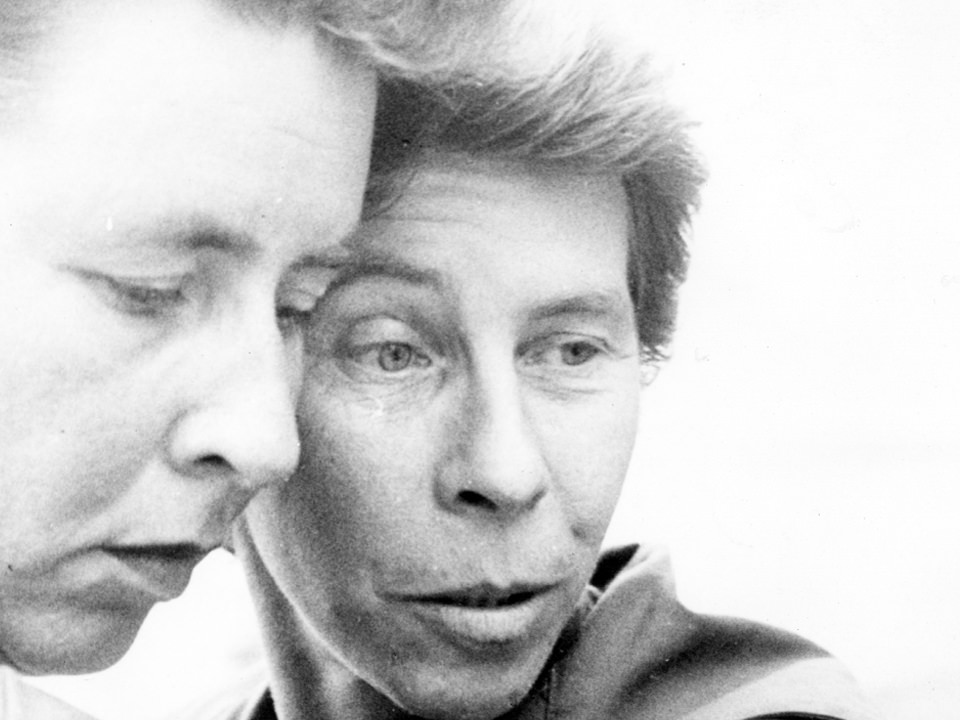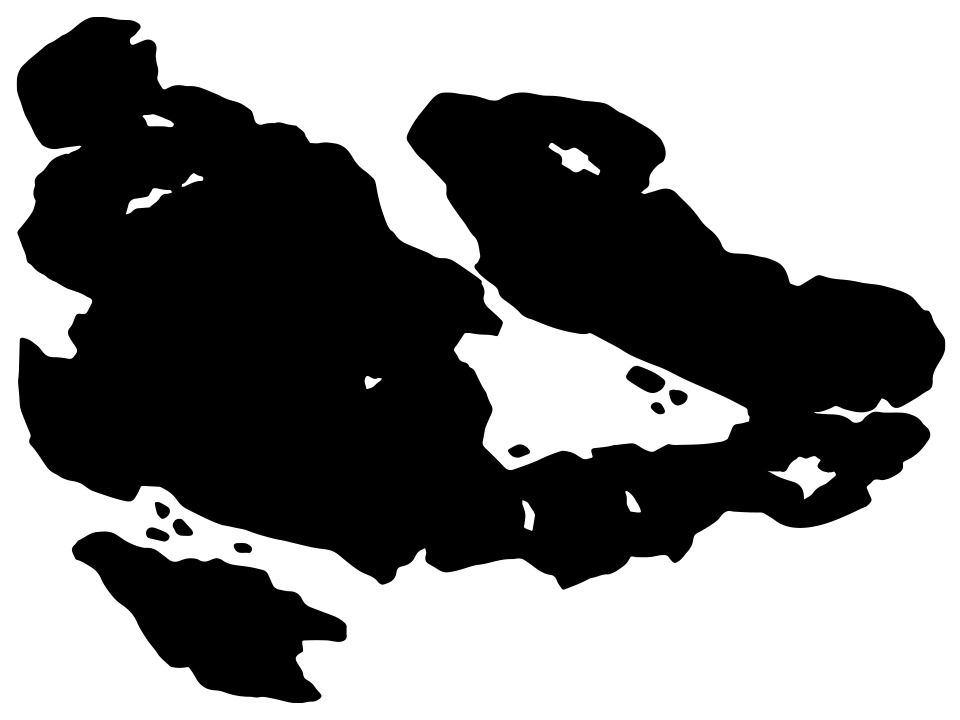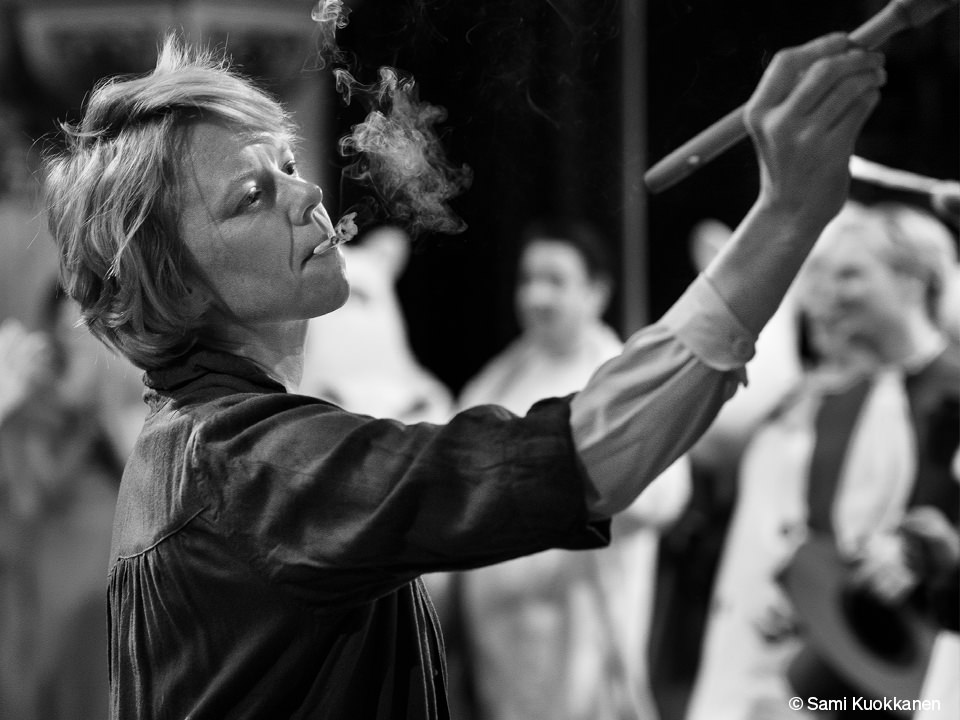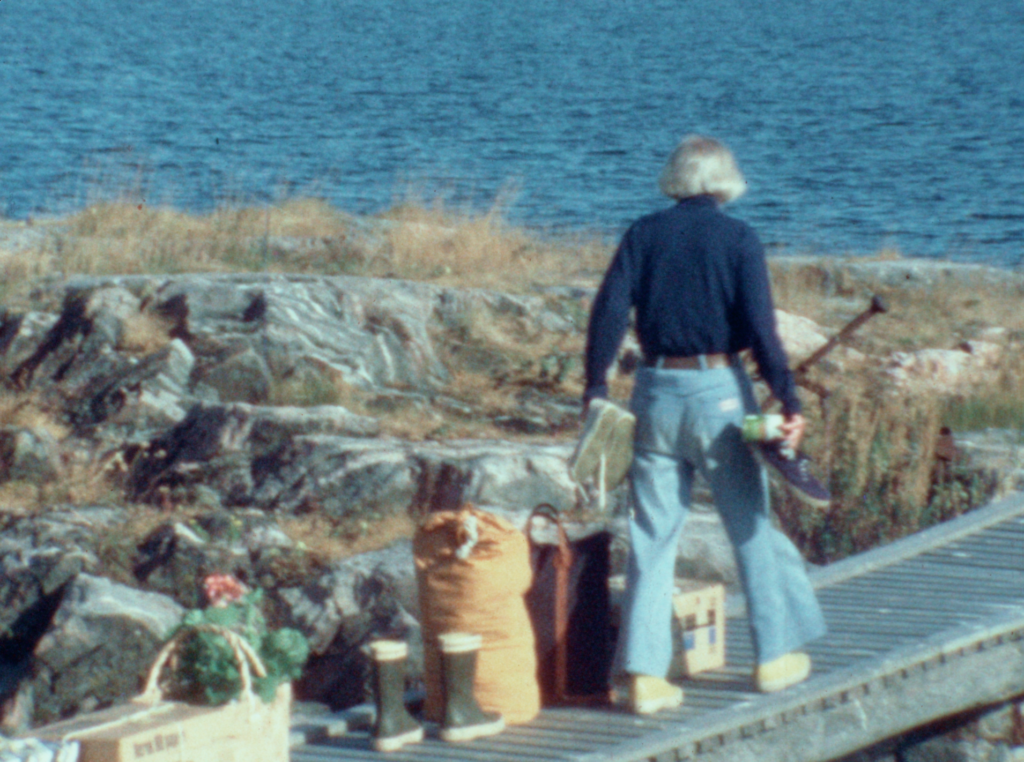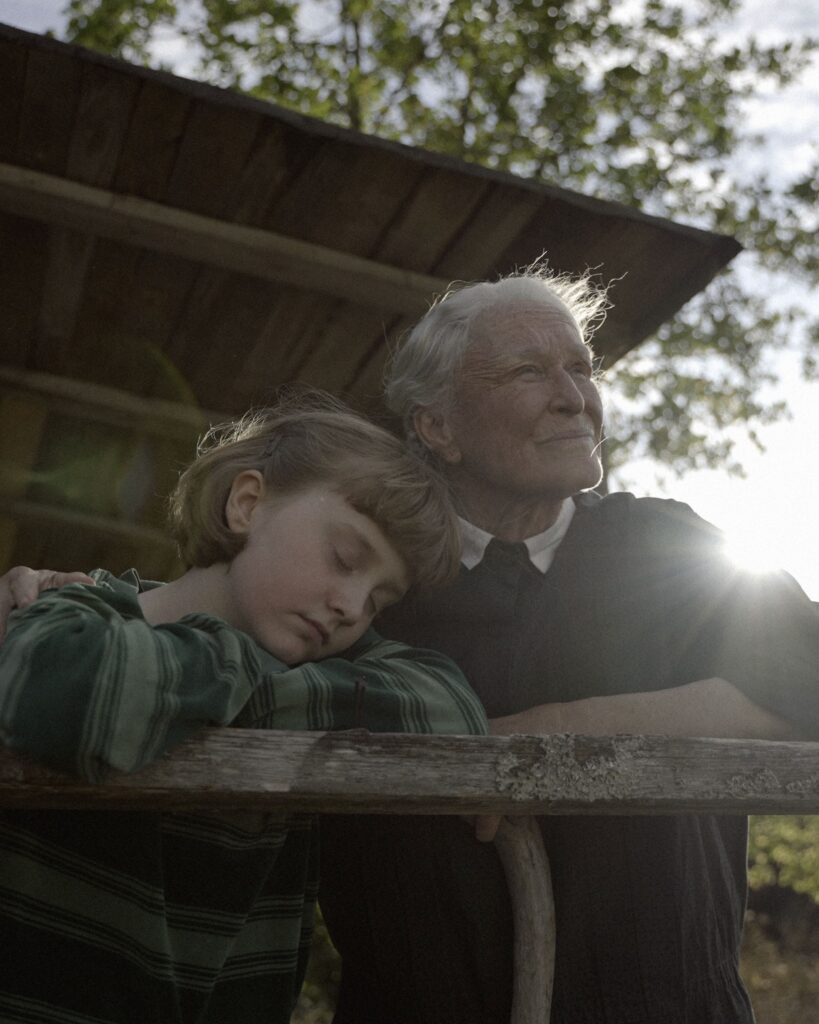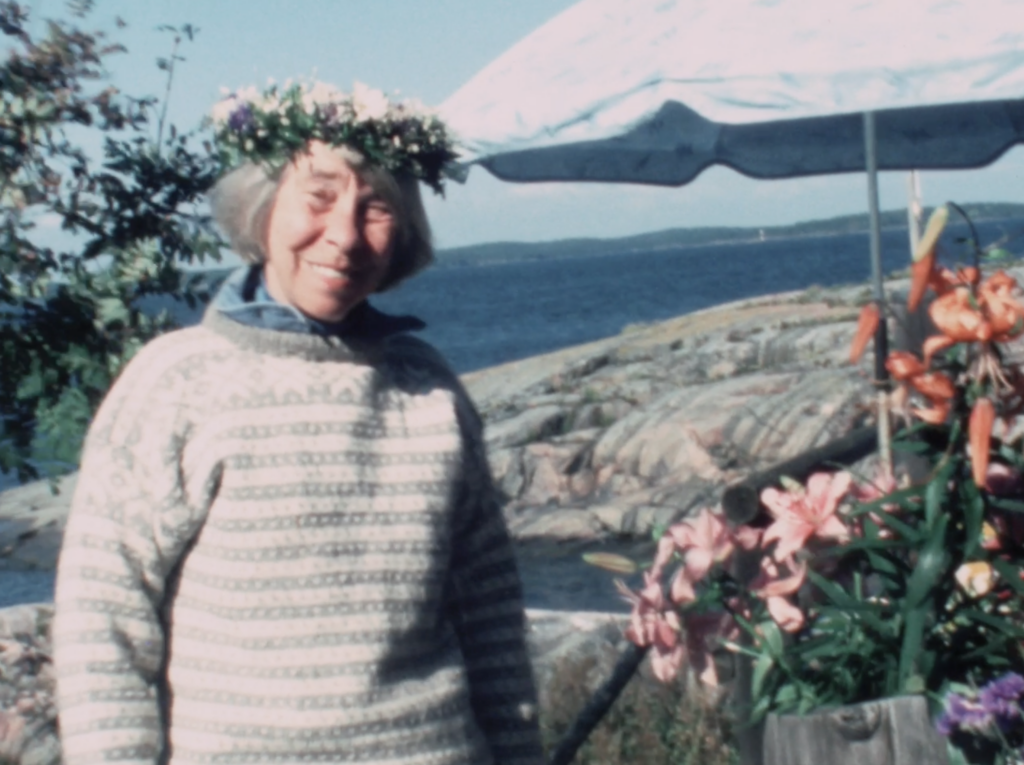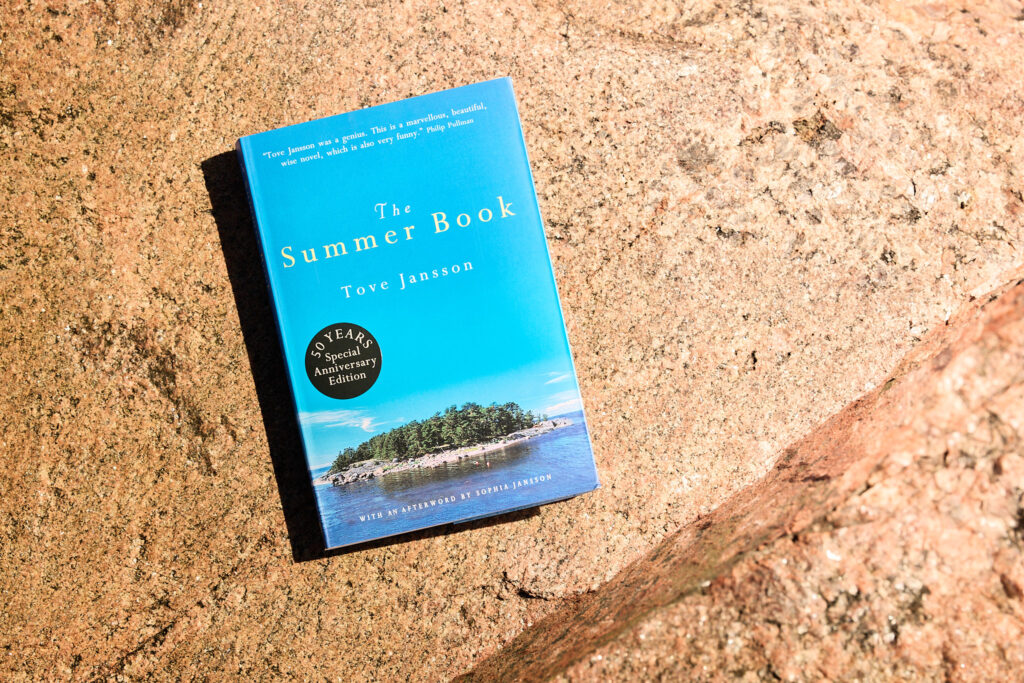
Inspiring The Summer Book quotes – the iconic novel is out in beautiful 50th anniversary edition

Tove Jansson’s much-loved classic The Summer Book turns 50 this year. It’s celebrated with anniversary editions in three languages with a new preface by Tove Jansson’s niece Sophia Jansson. The anniversary editions also includes Tove Jansson’s essay The Island. In this article, you’ll find some of the most beloved Summer Book quotes.
The Summer Book was deeply personal for Tove Jansson and she often mentioned it as one of her own favourites. The story of the unique friendship between the little girl Sophia and her grandmother, who spend endless summer days on an island far out in the archipelago, is loved by readers around the world. Many have a tradition of re-reading it every summer.
The themes range from everyday summer activities to deep philosophical discussions about life. Everything is seen through Tove Jansson’s unsentimental, sharp and at the same time humorous gaze. Below you will find a number of immortal Summer Book quotes, as well as some well-known voices about why they love it so much.
“People don’t dive with their eyes shut”
Summer Book Quote #1: About swimming and diving
“I can dive,” Sophia said. “Do you know what it feels like when you dive?”
“Of course I do,” her grandmother said. “You let go of everything and get ready and just dive. You can feel the seaweed against your legs. It’s brown, and the water’s clear, lighter towards the top, with lots of bubbles. And you glide. You hold your breath and glide and turn and come up, let yourself rise and breathe out. And then you float. Just float.”
“And all the time with your eyes open,” Sophia said.
“Naturally. People don’t dive with their eyes shut.”
“Only farmers and summer guests walk on the moss.”
Quote #2: About treading carefully in the archipelago
Only farmers and summer guests walk on the moss. What they don’t know – and it cannot be repeated too often – is that moss is terribly frail. Step on it once and it rises the next time it rains. The second time, it doesn’t rise back up. And the third time you step on moss, it dies.
“Your father won’t let either one of us go out to the ravine, but we’re going anyway”
Quote #3: Speaking about death with children
“When are you going to die?” the child asked.
And Grandmother answered, “Soon. But that is not the least concern of yours.”
“Why?” her grandchild asked.
She didn’t answer. She walked out on the rock and on towards the ravine.
“We’re not allowed out there!” Sophia screamed.
“I know,” the old woman answered disdainfully. “Your father won’t let either one of us go out to the ravine, but we’re going anyway, because your father is asleep and he won’t know.”
“No well-bredperson goes ashore on someone else’s island when there’s no one home”
Quote #4: On manners in the archipelago
“No well-bredperson goes ashore on someone else’s island when there’s no one home. But if they put up a sign, then you do it anyway, because it’s a slap in the face.”
“Naturally,” Sophia said, increasing her knowledge of life considerably.
“Draw the awfullest thing you can think of, and take as much time as you possibly can”
Quote #5: How to teach children to entertain themselves
“I don’t know anything to draw,” the child said.
“Draw something awful,” Grandmother said, for she was really tired now. “Draw the awfullest thing you can think of, and take as much time as you possibly can.”
Then she closed and latched the door and lay down on the bed and pulled the covers up over her head.
“An island can be dreadful for someone from outside.”
Quote #6: On impregnable island life
An island can be dreadful for someone from outside. Everything is complete, and everyone has his obstinate, sure and self-sufficient place. Within their shores, everything functions according to rituals that are as hard as rock from repetition, and at the same time they amble through their days as whimsically and casually as if the world ended at the horizon.
“It was such a long time ago. No one here was even born. ”
Quote #7: The difficulty in remembering and recounting
That’s strange, Grandmother thought. I can’t describe things any more. I can’t find the words, or maybe it’s just that I’m not trying hard enough. It was such a long time ago. No one here was even born. And unless I tell it because I want to, it’s as if it never happened; it gets closed off and then it’s lost.
“It’s funny about love. The more you love someone, the less he likes you back”
Quote #8: About loving someone who’s reluctant
“It’s funny about love,” Sophia said. “The more you love someone, the less he likes you back.” “That’s very true,” Grandmother observed. “And so what do you do?”
“You go on loving,” said Sophia threateningly. “You love harder and harder.”
“It is still summer, but the summer is no longer alive”
Quote #9 About August nights
Every year, the bright Scandinavian summer nights fade away without anyone’s noticing. One evening in August you have an errand outdoors, and all of a sudden it’s pitch-black. A great warm, dark silence surrounds the house. It is still summer, but the summer is no longer alive. It has come to a standstill; nothing withers, and autumn is not ready to begin.
“Damned child, Grandmother thought. Confounded children.”
Quote #10 What happens when “ those who are old enough” bring up children
Damned child, Grandmother thought. Confounded children. But that’s what happens when people won’t let you do anything fun. The people who are old enough.
The last quote that was not included
One would also like to quote the very last lines in the Summer Book, the ones about the herring boat, the heart sounds and all that. Those are lines which might move many a reader to tears after reading about how the family packs the island and the house for the autumn, and how Sophia wonders why her grandmother is in such a hurry. But, obviously, one can not share the last lines of a book in a context like this. So you can read them yourself in the book, reproduced in Tove Jansson’s unsentimental prose, clear as a summer night.
Said about The Summer Book
‘Jansson’s brilliance is to create a narrative that seems, at least, to have no forward motion, to exist in lit moments, gleaming dark moments, like lights on a string, each chapter its own beautifully constructed, random-seeming, complete story. Her writing is all magical deception, her sentences simple and loaded; the novel reads like looking through clear water and seeing, suddenly, the depth … Jansson was a writer who knew the proper magnitudes of our small worlds.’ Ali Smith, The Guardian
‘This slim, magical, life-affirming novel tells the story of a young girl and her grandmother, who spend their summers together on a small island in the Gulf of Finland. Absent of sentimentality, it is full of love and humor and wisdom.’ Elizabeth Gilbert, The New York Times
‘There’s a little girl and her grandmother, and they spend the summer on a small island in the Baltic, and they explore, and they play together, and that’s it; but in telling the story of their summer, Jansson seems to me to have come closer to the full truth about being alive and conscious of the world than anyone else except, perhaps, Mozart.’ Philip Pullman
‘Jansson creates her own complete world, full of the varied joys and sorrows of life.’ Robert MacFarlane
‘Few books since Robinson Crusoe have evoked the joys of island living so powerfully as this slim Finnish novel … the story clings on to the imagination like the trusting hand of a child, or the clutch of an elderly woman.’ Jonathan Heawood, The Observer
The Summer Book is also part of Waterstones’ #ReadForUkraine bid to raise £1 million for Oxfam’s Ukraine Humanitarian Appeal. 100% of the sales will go to Oxfam’s Ukraine Humanitarian Appeal.

